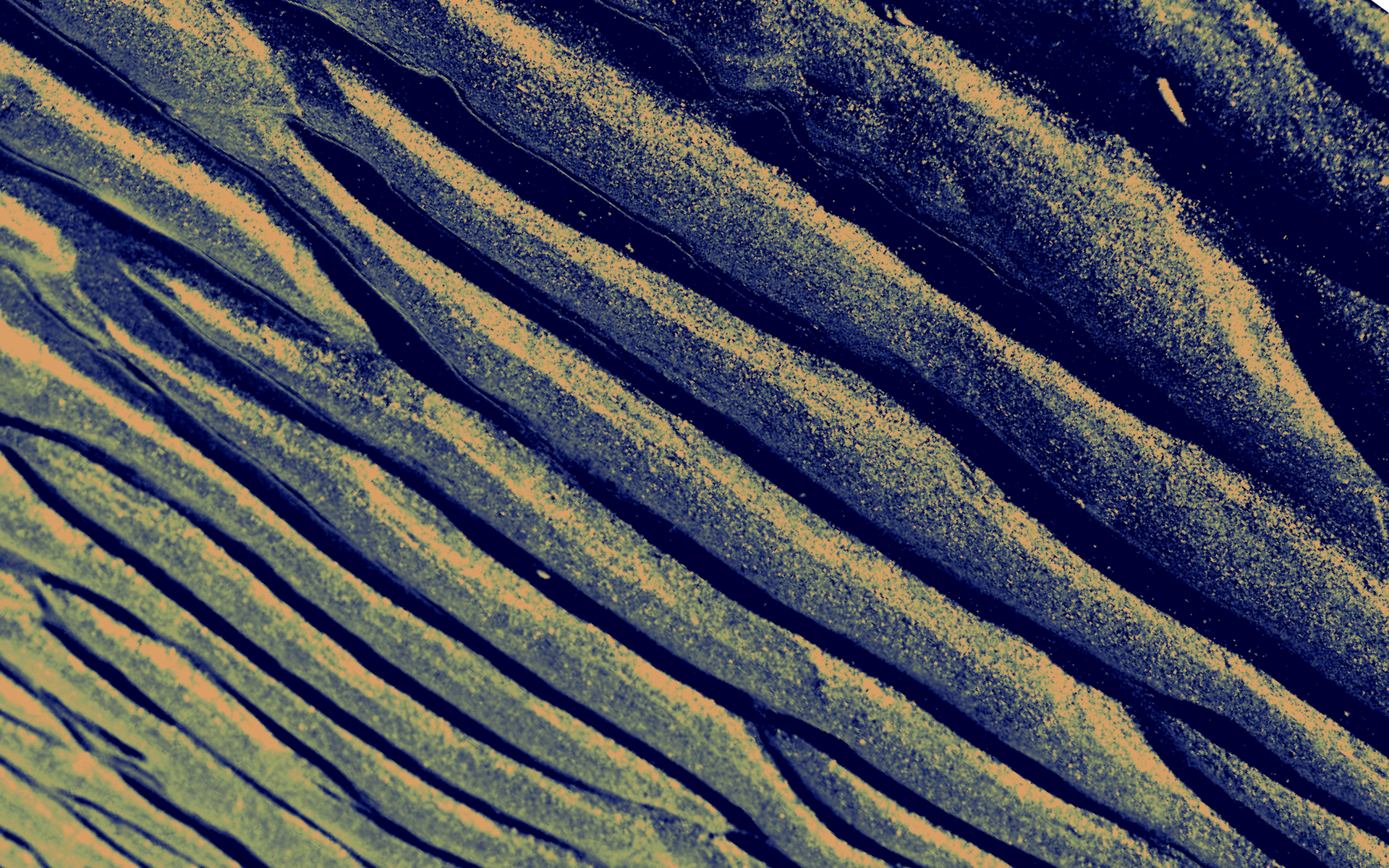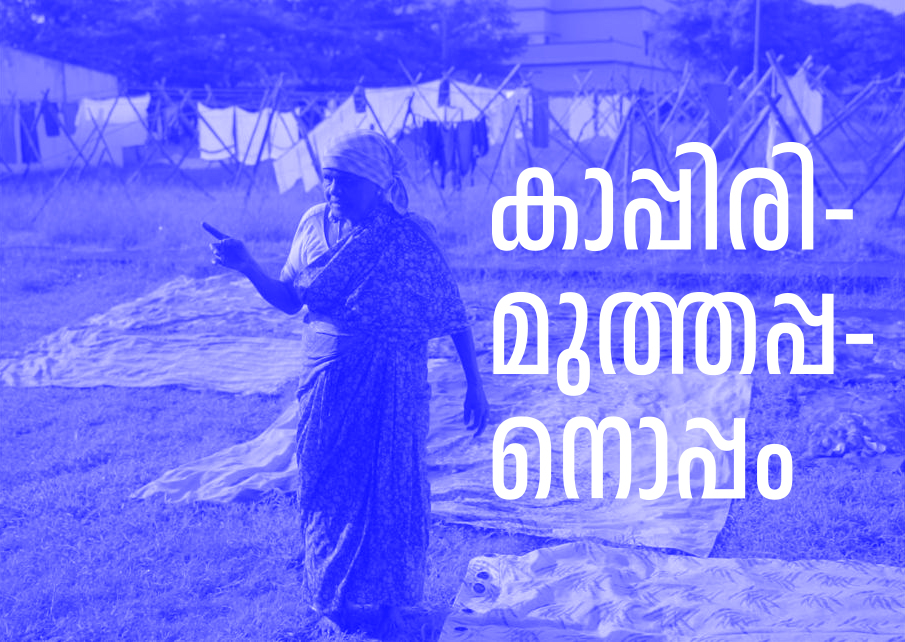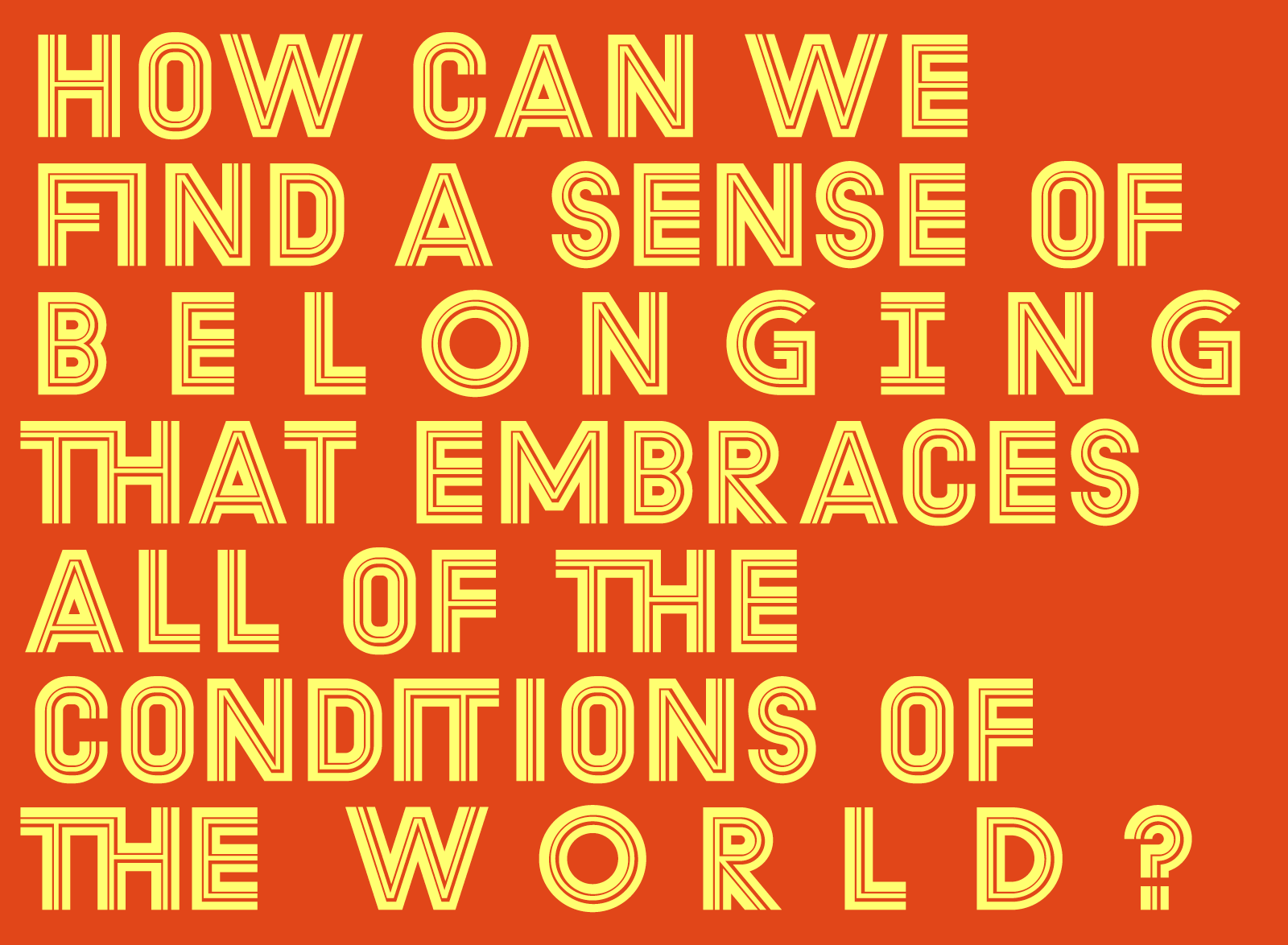Geographies of Imagination.
My Language Is A Bedouin Thief

Exhibition and Invocations project
2022–2023
My Language Is A Bedouin Thief
Exhibition
13.12.2022 – 10.04.2023
With Hera Büyüktaşcıyan, Gladys Kalichini, Fazal Rizvi, Samra Mansoor, Yara Mekawei
Curated by Hajra Haider Karrar
At Dutch Warehouse, Kalvathi Rd, Kochi, India
As part of Kochi-Muziris Biennale 2022 Invitations Programme
In the Spirit of Kappiri Muttapan
Workshop 09.01.–16.01.2023
Curated by Abhishek Nilamber and Rajesh James
At DhobiKhana, Kochi, India
A Collaboration between SAVVY Contemporary, Sacred Heart College and Kochi Biennale
How does one belong to a territory that resists inclusion? How does one embody a language that is imposed and lacks words to express one’s condition? How does one extend language to gestures that evoke lands of the paths traversed, resounding voices deemed invisible, creating echoes in the air? How does one become like the sand that slips through the fingers when attempted to be grasped? Or the water that charts it path across terrains carving through obstacles, collecting and carrying stories to be discovered and shared, and dismiss the demarcations that attempt to create divisions within?
Geographies of Imagination is a growing research and exhibition project that manifests itself as a cartographic timeline, a performative process of un-mapping the geography of power and a space of discourse. The project is an attempt to rethink, reconfigure and pervert history-at-large and cartographic histories in particular. Each iteration of Geographies of Imagination assumes a different point of departure, situates itself within another real or fictional geography.
Following the first two iterations in Berlin and Dhaka, the third rendition of this project revisits the obscured yet interconnected and interdependent histories of labour, enslavement, internal displacements of communities, and political prisoners and refugees embedded around the littoral zones of the Malabar Coast and intersecting geographies from across the ocean and beyond that are deeply resonant to the past and existing fabric of Kochi. These occurrences date back to the 7th century covering a period of subcontinental conquests, and European colonialism. The timeline continues with the import of Africans by the Portuguese in mid-16th century, the last region of the Indian subcontinent to be annexed by the British after great resistance from the Sikh Empire led by Maharani Jind Kaur in mid 19th century, to the partition of the Indian subcontinent 75 years ago. This is followed by the initiation of nation states and border lines drawn on the sea mid-20th century, implicating fishermen as prisoners of war for trans-boundary presence to date, and the simultaneous establishment of socialist regimes and the influence of the Soviet Union beyond the USSR. This timeline continues to be dotted with state surveillance and enforced disappearances, resulting in an increase in the marginalization of communities with the excuse of identitarian politics that incriminates caste, religion, ethnicity, language, and geography.
Devising languages through gestures, movements, and sound for storytelling and ritualistic commemoration, this iteration deliberates on how narratives could be poetically claimed while creating echoes through the relationship of the body to other bodies, the water and the soil. It navigates through the architectures of the land, soil and the sea recalling and establishing marginalized narratives. The gestures of care, self and collective, work through pain and generational trauma, assisting in carrying memory and history forward while forging bonds of solidarity across communities as a resistance to erasures. This solidarity sustains these communities, and those forgotten, connecting them and enabling them to share the unfolding of history through their narratives, sharing notions of belonging that supersede territorialisation and cartographies of power.
Geographies of Imagination: My Language is a Bedouin Thief [1] at the Kochi-Muziris Biennale 2022 will manifest as an exhibition reconfiguring these obscured and suppressed histories through sound, audio visual, text based and installation works charting across Karachi, Kochin, Hamburg, Chemnitz, Nuremburg, Munich, Lahore, Leipzig, and Cairo. This will be followed by a workshop, In the Spirit of Kappiri Muttappan, that unfolds in January, a collaboration with the Sacred Heart College, Kochi and the public laundry and community space Dhobikhana with the Vannan community connecting to the notions of solidarity and reverence to Kappiri Muthappan.
The first two iterations of the project were curated by Bonaventure Soh Bejeng Ndikung and Antonia Alampi, and the current iteration of the project is being curated by Hajra Haider Karrar, and the workshop conceived and led by Abhishek Nilamber.
This project is a collaboration between SAVVY Contemporary and the Kochi-Muziris Biennale 2022.
Supported by Goethe-Institut / Max Mueller Bhavan, New Delhi and Goethe Institute Bangalore.
Dipika Mukherjee, Wanderlust Ghazal. Rhino Poetry, 2016.



